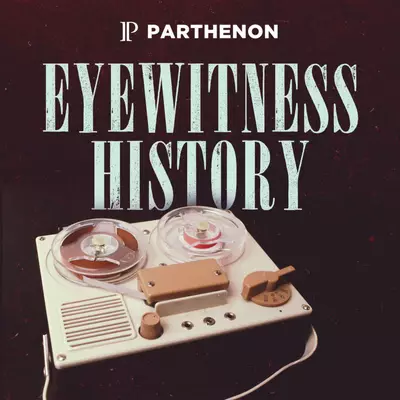Listen on Your Favorite App
Special Release: "September 11 2001, I Was A Sergeant In The 909 Precinct"; Former Police Officer Gives His 9/11 Experience
September 11, 2022
00:00
44:36
Listen on Your Favorite App
After his exposure to toxic debris from the collapsed twin towers, Tom Wilson, a former NYPD sergeant on 9/11, recalled his eyes and throat burning.
Wilson secured the Manhattan side of the Williamsburg Bridge on 9/11, conducted security around Ground Zero in the month following, was involved in rescue efforts, and among other assignments, searched rooftops in lower Manhattan for remains. He also combed through the Fresh Kills landfill on Staten Island for hours at a time into April 2002, sifting and raking through debris for items like bone fragments, rings and personal belongings to bring victims' families closure.
Though cancers weren't yet covered by the World Trade Center Health Program for treatment in 2008, when Wilson was diagnosed, current federal figures note 23,710 program members, including responders and survivors, with at least one cancer, and by 2020, members had 50,611 noncancer WTC-related certifications. As of the end of July of this year, 4,627 program members had died, though data don't indicate the cause of death. According to CDC/NIOSH spokesperson Stephanie Stevens, the most common health conditions seen among responders and survivors include chronic rhinosinusitis, gastroesophageal reflux disease (GERD) many types of cancer, asthma, sleep apnea, post-traumatic stress disorder (PTSD) and depression.
Wilson went on to endure over one-third of his tongue removed and rebuilt with a skin graft from his wrist, along with two radical neck dissections to remove 39 lymph nodes and place an arterial graft in the neck to supply blood to the new tongue. He is still grappling with long-term effects from subsequent head and neck radiation, and deals with severe pain, dizziness and headaches.
Source: https://www.foxnews.com/health/9-11-toxic-exposure-cancer-20-years-later
Wilson secured the Manhattan side of the Williamsburg Bridge on 9/11, conducted security around Ground Zero in the month following, was involved in rescue efforts, and among other assignments, searched rooftops in lower Manhattan for remains. He also combed through the Fresh Kills landfill on Staten Island for hours at a time into April 2002, sifting and raking through debris for items like bone fragments, rings and personal belongings to bring victims' families closure.
Though cancers weren't yet covered by the World Trade Center Health Program for treatment in 2008, when Wilson was diagnosed, current federal figures note 23,710 program members, including responders and survivors, with at least one cancer, and by 2020, members had 50,611 noncancer WTC-related certifications. As of the end of July of this year, 4,627 program members had died, though data don't indicate the cause of death. According to CDC/NIOSH spokesperson Stephanie Stevens, the most common health conditions seen among responders and survivors include chronic rhinosinusitis, gastroesophageal reflux disease (GERD) many types of cancer, asthma, sleep apnea, post-traumatic stress disorder (PTSD) and depression.
Wilson went on to endure over one-third of his tongue removed and rebuilt with a skin graft from his wrist, along with two radical neck dissections to remove 39 lymph nodes and place an arterial graft in the neck to supply blood to the new tongue. He is still grappling with long-term effects from subsequent head and neck radiation, and deals with severe pain, dizziness and headaches.
Source: https://www.foxnews.com/health/9-11-toxic-exposure-cancer-20-years-later
See omnystudio.com/listener for privacy information.
More Episodes
See all episodes
Meet Your Host

Josh Cohen is a journalist and commentator living out of the Midwest.
He has written for a number of reputable publications.
His fascination with history is in the story of our existence and how it is told. Keeping the tradition of storytelling alive in Eyewitness History is what drives him.
He has written for a number of reputable publications.
His fascination with history is in the story of our existence and how it is told. Keeping the tradition of storytelling alive in Eyewitness History is what drives him.
